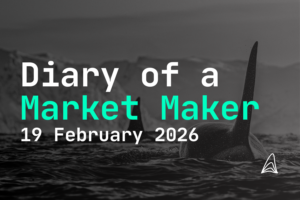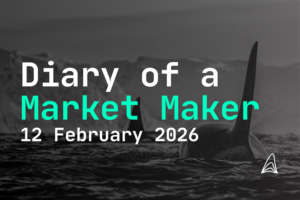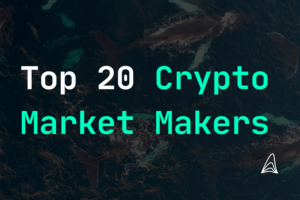Security testing checks for vulnerabilities like reentrancy attacks and unauthorized access, ensuring the token is robust against common threats and secure for users.
- Jakob Brezigar
- Last updated: 6. September 2024
- Reading time: 5 min
Testing the Crypto Token Properly
Launching a new crypto token involves much more than just writing code and deploying it to a blockchain. It’s a meticulous process where thorough testing is paramount to ensuring your token operates smoothly and securely in the wild world of crypto. In this guide, we’ll explore how to effectively test a crypto token, from setting up the environment to stress testing and security checks. Let’s dive into the nuts and bolts of token testing, with a little help from Orcabay, whose tailored and proactive market-making strategies ensure every project gets the attention it deserves.

Table of Contents
Why is testing a crypto token on a testnet important?
Testing on a testnet allows developers to identify and fix issues without risking real assets. It simulates real-world conditions in a controlled environment, ensuring the token’s functionality, security, and efficiency before launching on the mainnet.
What is stress testing in crypto token development?
Stress testing involves simulating high transaction volumes to assess how well the token and smart contract perform under heavy load, identifying potential bottlenecks.
Key Takeaways - Testing the Crypto Token:
- Proper testnet setup is crucial for deploying and testing crypto tokens safely before launching them on the mainnet.
- Functional testing ensures core token functions like transfers, minting, and interactions with other contracts work correctly.
- Stress testing simulates high transaction volumes to verify your token’s performance under heavy load.
- Security testing identifies vulnerabilities, ensuring your token is protected against common attack vectors like reentrancy and overflow.
- Continuous feedback and refinement improve your token’s reliability, making it market-ready and optimized for gas efficiency.
Set Up the Testing Environment
Before diving into the actual testing of your crypto token, you need to set up the right environment. The first step is choosing an appropriate testnet. A testnet is a version of the blockchain designed specifically for testing purposes, allowing developers to deploy and interact with their smart contracts without risking real assets. Popular testnets like Ethereum’s Goerli or Rinkeby are ideal for this.
Configuring your wallets and tools to interact with the chosen testnet is the next crucial step. Your wallet needs to support the testnet, and you’ll likely need testnet tokens (which have no real-world value) to cover transaction fees. Using development tools like Truffle or Hardhat, configure your environment so that your smart contract deployment and testing process will be smooth.
With the environment ready, you can now deploy your smart contract. This step is like sending your code out into the real world, but in a controlled and risk-free setting. Orcabay’s deep understanding of market conditions means we would ensure everything is set up correctly from the start, monitoring daily and offering adjustments as needed.

Deploy the Smart Contract to the Testnet
Deploying your smart contract to the testnet is a critical step. It involves not just getting the contract onto the blockchain but also ensuring it is correctly initialized. After deployment, verify that the contract address is accurate and that all initialization parameters are correctly configured. This step is crucial because any mistake here could cause the contract to behave unexpectedly.
Once deployed, double-check all aspects of the contract’s functionality. This is where the testing begins in earnest. Orcabay’s development-first approach is crucial for this step and can help fine-tune deployment strategies based on ongoing test results.
Conduct Functional Testing
Functional testing is all about making sure your token does what it’s supposed to do. Start by testing core functions like transfer, minting, and burning. Each of these functions must work flawlessly, as they are the backbone of most crypto tokens. For instance, the transfer function should allow users to send tokens to one another without errors or delays.
Beyond basic functions, it’s crucial to validate how your token interacts with other smart contracts. If your token will be integrated with decentralized exchanges (DEXs) or other dApps, ensure these interactions are seamless. Orcabay’s transparency and detailed reporting would ensure that all interactions are monitored, and any issues are addressed promptly.
During functional testing, you might encounter unexpected behaviors. It’s vital to log these issues, analyze them, and refine your smart contract code accordingly. Regular feedback loops with developers and testers can greatly enhance the reliability of your token before it hits the mainnet.

Perform Stress Testing
Crypto tokens must be able to handle heavy loads, especially during high-traffic periods. Stress testing simulates these conditions by generating a large volume of transactions to see how your smart contract performs under pressure. This type of testing helps you identify potential bottlenecks and performance issues that could hinder your token’s success in a real-world scenario.
To perform stress testing, use automated tools to simulate thousands of transactions. Monitor how the contract handles this load, noting any slowdowns or failures. The goal is to ensure that your token remains functional and efficient even when transaction volumes spike.
Orcabay’s market-making algorithms, built in-house and equipped with profit and principal protection mechanisms, would be put to the test in such conditions. These systems are designed to operate efficiently even under market manipulation attempts, making sure your token remains robust during high-stress scenarios.
Test Security and Vulnerability
Security is a top priority in the crypto space. Testing for vulnerabilities involves simulating common attack vectors like reentrancy, integer overflow, and unauthorized access. These are some of the most exploited weaknesses in smart contracts, so it’s essential to address them.
Start by attempting reentrancy attacks, where a malicious actor could manipulate a contract’s state by repeatedly calling a function before the previous execution completes. Similarly, check for integer overflows that could lead to unexpected behavior in arithmetic operations.
Another critical area is access control. Ensure that only authorized addresses can perform sensitive actions like minting new tokens or pausing the contract. Orcabay’s focus on compliance and regulation means that we emphasize robust access controls and permissions, aligning with EU standards to keep your token secure.
Security audits, preferably by a third-party, are highly recommended before launching your token. These audits provide an additional layer of assurance, identifying vulnerabilities you might have missed during internal testing.
Analyze Gas Usage and Efficiency
Gas fees are a major concern for any smart contract, as they directly affect the user experience. High gas costs can deter users from interacting with your token, so it’s crucial to optimize your contract to minimize these expenses.
Start by analyzing the gas usage of your contract’s functions. Use tools like Ethereum’s gas profiler to identify which operations consume the most gas. Once you’ve pinpointed the gas guzzlers, look for ways to optimize your code. This might involve simplifying logic, reducing the number of operations, or using more efficient data structures.
Testing under different network conditions is also vital. Network congestion can dramatically increase gas prices, so ensure your contract remains affordable even during peak times. Orcabay’s strategies, designed to shield your project from market manipulation, would ensure that gas efficiency is maintained even in volatile conditions, safeguarding your users from excessive fees.

Gather and Address Feedback
After all the testing is done, gather feedback from your testing team. This step involves collecting logs, reports, and any other data generated during the testing process. These insights are invaluable for identifying areas where the token can be improved.
Feedback should be analyzed thoroughly, and the token should be refined based on these findings. This iterative process helps ensure that the final product is as polished as possible before it goes live. Orcabay’s commitment to daily monitoring and providing actionable suggestions ensures that no stone is left unturned in this final phase of testing.
By the end of this process, your token should be well-prepared for launch. All the functions should work flawlessly, the contract should be optimized for gas efficiency, and the token should be secure against potential attacks. With the right testing procedures in place, you can confidently move forward, knowing that your token is ready to take on the world of crypto.
Conclusion About Testing the Crypto Token
Testing a crypto token is not just a technical necessity but a critical component of ensuring long-term success in the crypto market. From setting up the right testing environment to conducting thorough stress and security tests, each step is essential. Orcabay’s tailored approach, which includes daily monitoring and strategy adjustments, offers a competitive edge, ensuring that your token is not just launched but is primed for success in the market. As you move forward, remember that testing is an ongoing process—one that continues even after your token goes live.
Disclaimer: The information provided in this article is for informational purposes only and does not constitute financial, investment, or other professional advice. All opinions expressed herein are solely those of the author and do not represent the views or opinions of any entity with which the author may be associated. Investing in financial markets involves risk, including the potential loss of principal. Readers should perform their own research and consult with a licensed financial advisor before making any investment decisions. Past performance is not indicative of future results.

Jakob Brezigar
Jakob, an experienced specialist in the field of cryptocurrency market making, boasts an extensive international presence. With Orcabay, he has skillfully managed major operations and deals for a wide array of global stakeholders.




